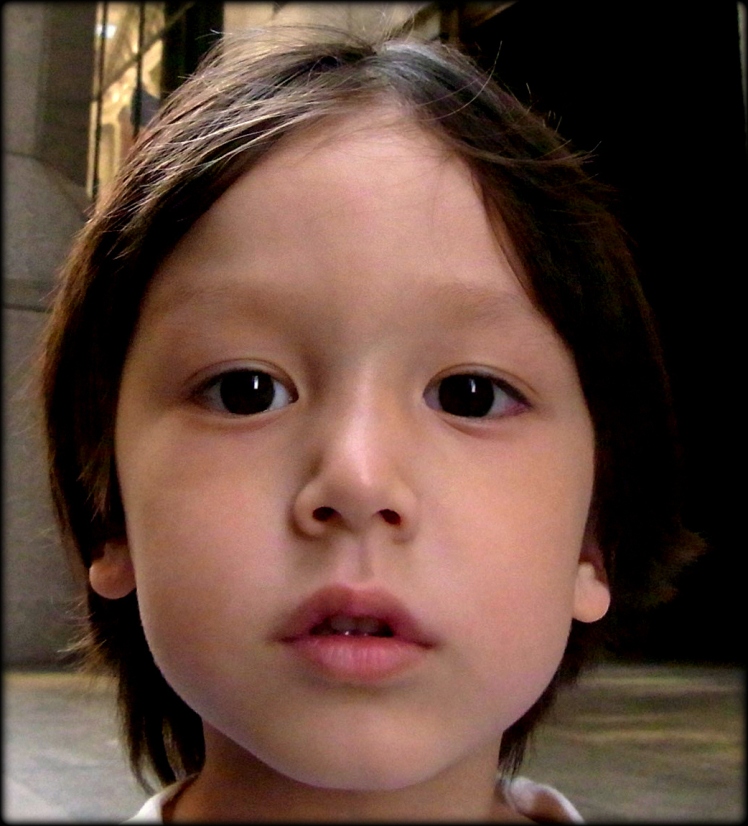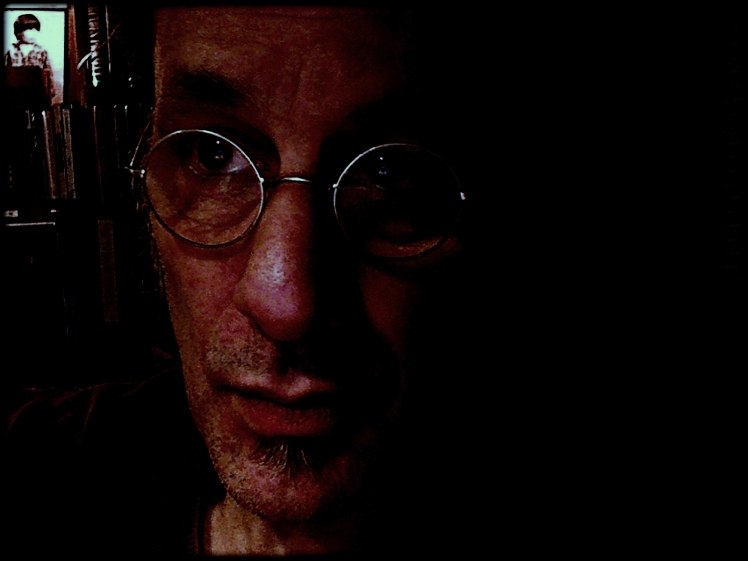Sunday, June 19, 2016

I imagine (merely imagine) that if he could speak from this part of himself, it might sound something like this:
“I have a father.
Just like anyone, I have a father who loves me, who longs to care for me, and whose care I need; a person who is part of me who I need to know, bond with, play with, and learn from in order to form a healthy psychic self. “
I might want him to say, “I have a grandfather as well, who doesn’t know me now. Uncles and aunts, cousins and more. I had a language and geography in which I was once finding a place for myself. All of these external persons and places, not yet fully formed in me, were becoming something.
But then, I also have a mother, who hid me, like a keeper keeps. Within a family, a blurred and narrow, painfully-induced, broken-fragment concept of what I am. Likely she doesn’t tolerate the range of things that make up a whole person. She refuses to see in me the relation between “heteronomy” and “autonomy…” The thread between the building-up frame of multiple attachments – support beams and dream spaces; songs we sing to ready ourselves for sleep and voice-tones we hear inside the quiet – all of these attachments that we make as small, growing people, which eventually grow into those on which we must depend, though we get on with detaching from them. With guidance and help, the time we pass, the attaching and detaching, binds the fragments into a world we feel from within, and eventually hope to share with new persons.
But – “Soul murder results in breaking the victim’s identity into contradictory fragments that function independently, without effective synthesis.” (Leonard Shengold, Soul Murder, p. 256).
From her actions, it’s clear enough that mother hadn’t acquired the concept of how profoundly the protection from the dangerous or “threatening” element in the dependencies that all children have, is part of “good” parental treatment of a loved child. Protection from the eating, ravenous, devouring object that is created between us, if we are not wary enough of it. These are hard things to express, much less to deeply intuit.
There is what Winnicott called a “resting place for the individual engaged in the perpetual human task of keeping inner and outer reality separate yet interrelated.” (in Playing and Reality.) This place, a place that exists in a ghostly imaginary in-between, is the place the protected and well-loved child pours her love into: the teddy bear space (or the thumb) become visible evidence that this repository of this love exists, though it can be rendered unseen with insensitive eyes; eyes of blame.
I often vividly remember a plaintive sound Rui gave, turning to his mother over his left shoulder, innocently asking “why-y?” when she refused his daddy a place in the king-sized bedtime story space where he was soon comforted to sleep. She wanted The Father to Leave the Room and Shut Himself Behind the Door. To leave them to their fragment, their unitary bond. She conspired against the heteronomous person laying there under her care. But he protested – with this intersubjective space of love almost materializing in the room above our heads, making its presence known and felt in each of us. “Why” indeed?
As I lay down and touched his four-year-old head, he was now smiling with the cover tucked under each arm. I saw his triumphal power to satisfy his wish. It wasn’t so much to ask; it didn’t last long. I recall the way his face squeezed itself into a display-smile for his mother to understand, were she to let herself see, his defense against anxiety.


I read with appreciation your thoughtful and thought provoking posting on Adrienne Hurley’s Revolutionary Suicide, and then it pained me to see your note regarding the forced estrangement from you son. No doubt not very comforting for the enduring present, but at the very least, he will surely seek you out when due time will help bring emancipation to your son. Wishing you the best. –Jim Fujii
LikeLiked by 1 person
Thank you Jim. There are hundreds of us… thousands actually. And 3 million Japanese children today who have no meaningful post-divorce relationships with those who love them most. It is never ending spiral; my boy lives; he is “out there”; he suffers the damage, and I am unable to save him and give him the enormous love and care and learning I have for him. All down to the decision of one person’s greed and damaged soul; and systemic inducements and support that cause it to continue and grow deeper.
Thank you for the wishes and thoughts. We need very much to know that we are reaching someone, somewhere.
Brian
LikeLike
Undoubtedly you know far more about this than I do; I’ve seen several good Japan Times articles on the issue this year.
LikeLiked by 1 person
Articles, yes. Not always very good ones… but they appear… on rare occasions.
LikeLike